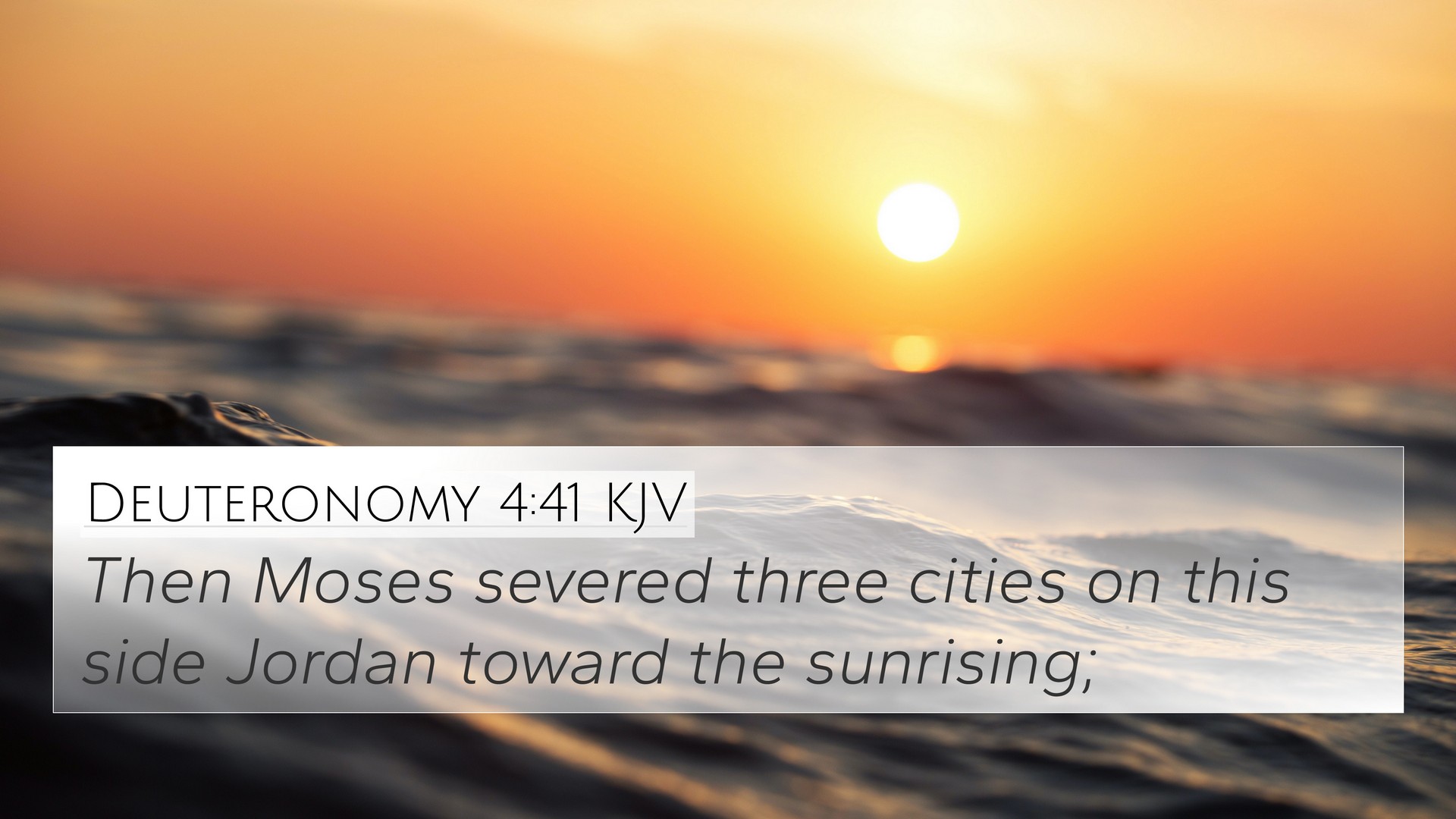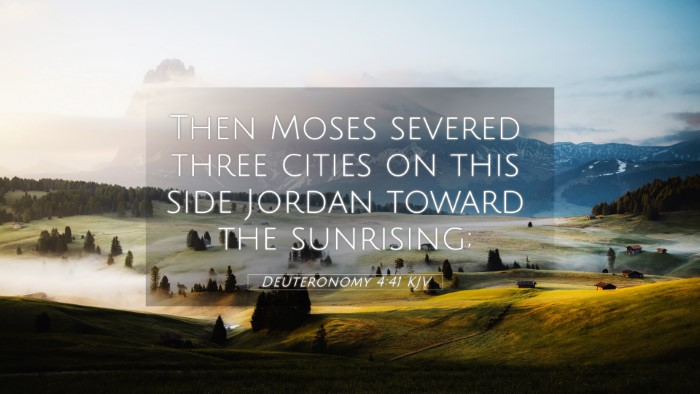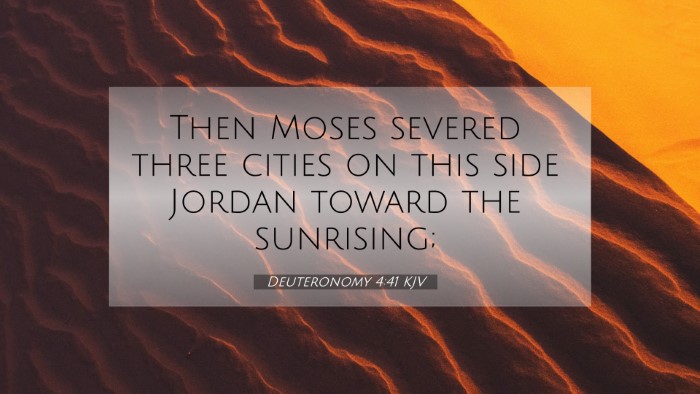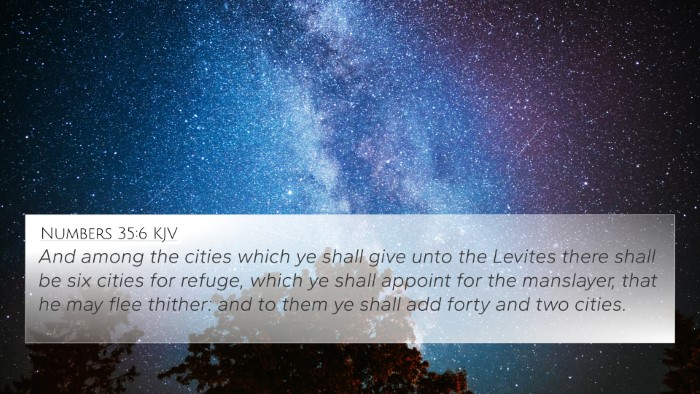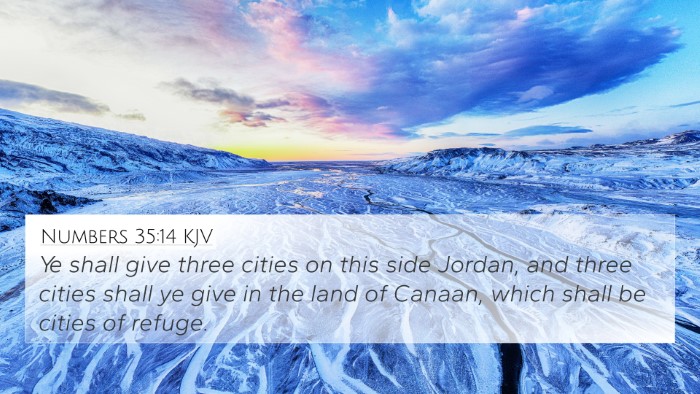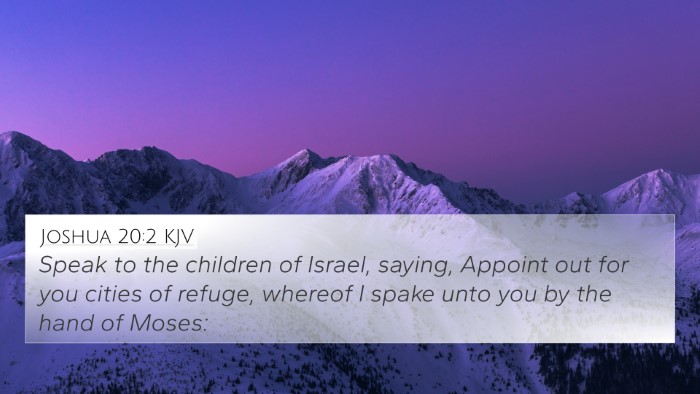Understanding Deuteronomy 4:41
Deuteronomy 4:41 states: "Then Moses set apart three cities on this side of the Jordan, toward the rising of the sun." This verse marks a significant moment in the law-setting of the Israelites, as it deals with cities of refuge.
Meaning and Context
This verse highlights Moses’ actions in designating cities of refuge, which serve as a means for those who accidentally commit manslaughter to escape vengeance. These cities symbolize God's mercy and the opportunity for a fresh start for those who may have made a grievous mistake.
According to Albert Barnes, this passage shows the establishment of divinely ordained places of safety where individuals could seek reprieve from blood avengers. It underlines God's justice and grace, ensuring that the innocent receive protection.
Thematic Connections
The themes of refuge and mercy interlace throughout Scripture, connecting this verse to broader biblical truths. Adam Clarke notes that these cities foreshadow the ultimate refuge found in Christ, as He is our protector and redeemer from sin and judgment.
Cross-References
This verse resonates with various other biblical texts, enhancing our understanding through their connections. Here are some critical cross-references:
- Numbers 35:6-15: This passage elaborates on the concept of cities of refuge and their purpose.
- Joshua 20:7-9: Joshua provides details about the cities that were to be designated as places of refuge.
- Exodus 21:13-14: Discusses the notion of accidental manslaughter and the provision of sanctuary.
- Hebrews 6:18: This New Testament verse speaks to the hope we have in Jesus as our refuge.
- Psalms 46:1: "God is our refuge and strength, a very present help in trouble." This verse mirrors the theme of finding safety in God.
- Romans 8:1: Depicts the grace offered through Christ, free from condemnation, much like the refuge cities offered safety.
- Matthew 5:21-22: Jesus expands on murder and the heart condition, connecting back to the gravity of the sin addressed in Deuteronomy 4:41.
- Acts 2:21: Indicates that everyone who calls on the name of the Lord will be saved, paralleling the refuge provided.
- Colossians 3:3: "For you died, and your life is hidden with Christ in God," emphasizes our security in Christ, analogous to the protection cities offered.
- 1 John 2:1: Conveys that Jesus serves as our advocate, similar to the role of these cities for the accused.
Comparative Analysis
Through comparative Bible verse analysis, we can see that Deuteronomy 4:41 not only provides historical context for the Israelites but also bridges numerous theological themes relevant to both the Old and New Testaments. For instance, reflecting on the parallels between the cities of refuge and the concept of sanctuary provided by God’s grace enriches the understanding of divine protection.
This verse encourages a deeper exploration of how Old Testament laws presage the coming of Christ, showcasing the consistency in God’s character throughout Scripture. The tools for Bible cross-referencing become essential here, as they help illuminate the interplay between scriptures and enhance the interpretation of these themes.
Application for Study
For those engaging in biblical study, utilizing a bible concordance and bible cross-reference guide can aid in uncovering these thematic connections. Identifying connections between Bible verses can lead to a richer understanding of God’s mercy and justice.
Consider employing cross-referencing Bible study methods to delve deeper into how this verse relates to issues of justice, mercy, and redemption. Knowing how to find cross-references in the Bible will assist in drawing parallels that elucidate God’s unchanging nature across different contexts.
Conclusion
Deuteronomy 4:41 resonates with profound implications for understanding divine justice and mercy. The designation of cities of refuge was not merely a practical legal measure; it serves as a metaphor for the safety and refuge found in God through faith in Christ. This inter-biblical dialogue underscores how threads of mercy are woven through God's law, culminating in the ultimate refuge found in the New Testament.
In summary, examining this verse in conjunction with related passages offers a rich study experience, revealing the interconnectedness of Scripture and the comprehensive nature of God's redemptive plan.
